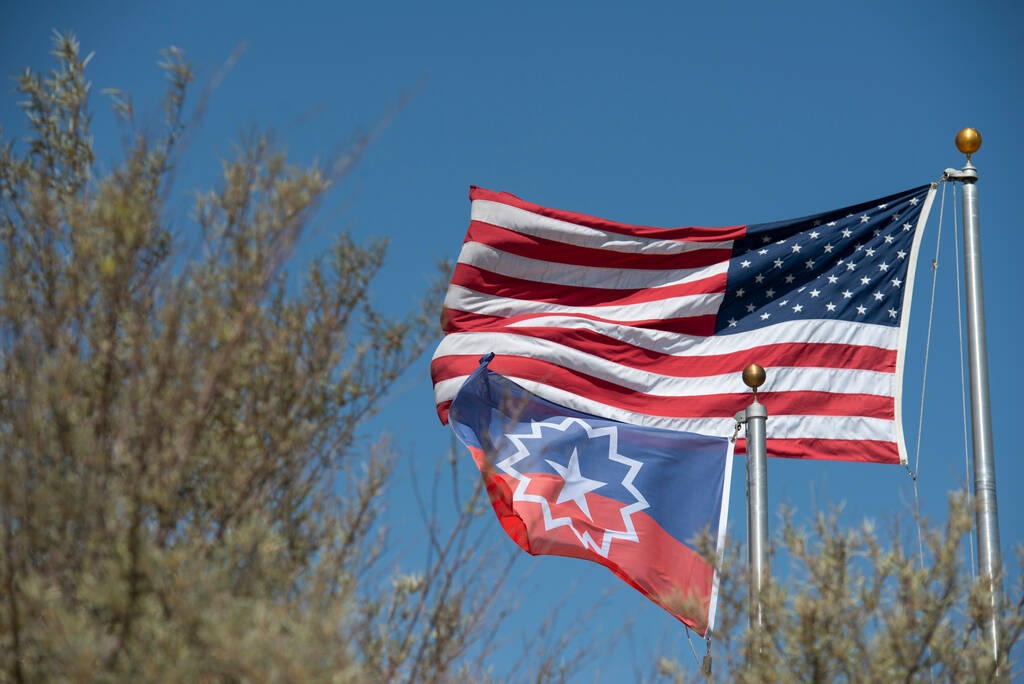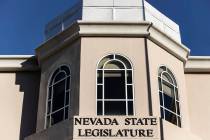Juneteenth, outlawing slavery as punishment on legislative agenda
Nevada could begin celebrating Juneteenth as a state holiday, commemorating the date when formerly enslaved people in Texas learned of the end of the Civil War.
The city of North Las Vegas requested Assembly Bill 31 in the 2023 Legislature, which would make Juneteenth a state-recognized holiday in addition to a federal one.
The law currently requires the governor to proclaim June 19 as “Juneteenth Day” annually, but under AB 31, the state would designate the third Monday in June as Juneteenth and require state, county and city offices to close. Republican Gov. Joe Lombardo has said that he would sign the legislation if it comes to his desk.
“We feel it’s an important date in the history of the United States,” said Jared Luke, director of government affairs and economic development for the city of North Las Vegas. “When slavery was abolished, not everybody knew about it right away.”
On June 19, 1865 — about two years after the Emancipation Proclamation declared an end to slavery — Black Union troops arrived in Galveston, Texas, alongside Maj. Gen. Gordon Granger and announced that more than 250,000 enslaved Black people were freed by executive decree. Juneteenth recognizes the end of slavery in the U.S. and is considered the longest-running African American holiday.
“It is important because (Black people) helped build the country,” said Deborah “Dee” Evans, president of Juneteenth Nevada and head of the board of directors for the National Juneteenth Observance Foundation. “We are America. We’re not just African Americans. We are Americans. We are Nevadans. It’s important that each state takes its own history into account.”
Nevada’s own history
Though “battle born” during a fight against slavery, Nevada had its own history with discrimination and segregation.
Before 1960, Black people could not stay in the Hoover Dam area of Las Vegas, Evans said. While many worked in the city, they had to return to the west side of town before dark and were not allowed to patronize any Las Vegas Strip casino.
It wasn’t until what is known as the “Moulin Rouge Agreement” — signed at the first integrated Las Vegas casino, which opened in 1955 — that Black residents were allowed to dine, gamble and stay at Strip hotels.
“It was an agreement between the news, leaders in the west side and the casino leaders,” Evans said.
Outlawing slavery as punishment
In other legislation related to slavery, Assembly Joint Resolution 10 would remove language from the ordinance section of the state constitution that allows slavery or involuntary servitude in punishment for a crime. The resolution, which was approved in 2021, needs to be approved again by the Legislature before it goes before voters in 2024.
After slavery was abolished, programs like convict leasing were put in place to allow for the system of forced labor to continue, said Assemblyman Howard Watts III, D-Las Vegas, who sponsored the resolution. Criminalizing minor offenses was a way of depriving people of their freedom and forcing them to provide free labor, he said.
“It’s a clear statement where we are as a society,” Watts said of the legislation. “Under no circumstances will we tolerate the use of slavery and involuntary servitude.”
The legislation is largely symbolic, as there are no programs in place forcing prisoners to work. There are, however, voluntary prison worker programs in which incarcerated people are compensated for their labor. Regardless, Watts said, the constitution as it exists still allows for people to be forced to work as a criminal punishment.
“Just because it’s not happening now, we want to make sure that it could never happen again,” Watts said.
Contact Jessica Hill at jehill@reviewjournal.com. Follow @jess_hillyeah on Twitter.





























